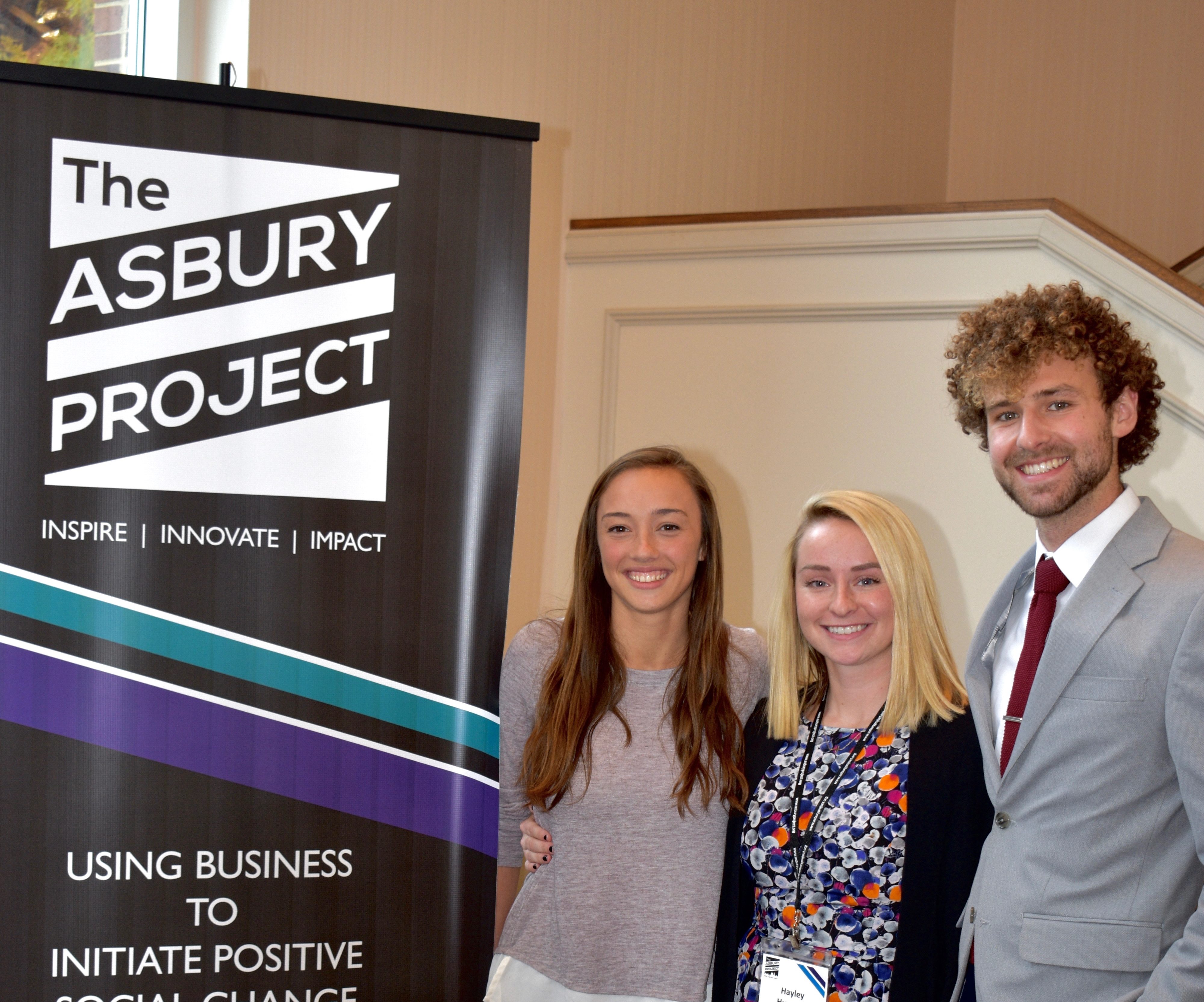Cathryn Lien, Features Editor
Can entrepreneurship be a tool for evangelism? The Asbury Project, co-hosted by Asbury University’s Howard Dayton School of Business and Asbury Theological Seminary’s Office of Faith, Work and Economics, has sought to bring faith to the marketplace. This past Thursday and Friday, The Asbury Project held seminars and workshops with Christian business professionals and a student business plan competition.
Since 2014, this free two-day conference has united students and business leaders in dialogue with national and local entrepreneurs, community leaders and pastors. Attendees of the conference learn how to use the business mechanism to initiate positive social change.
The business plan competition, open to both the seminary and university, allowed students to propose a business plan that solves a social problem, makes a profit and inspires social progress. The competition awarded a total of $10,000 in prizes for students to use to launch their winning businesses.
The 2017 Audience Favorite and Grand Prize Winner was junior Alexandria George, the CEO of Smart Student Storage, a company that saves students time and money by storing dorm items between school years.
George implemented phase one of her plan over the past year, reaching students on Asbury’s campus. She plans to extend her business to other schools across Kentucky and the United States, and she expressed gratitude for how the prize money will contribute to the success of her company.
“I’m just inspired to make an impact in the marketplace with my faith,” George said.
The competition gave smaller prizes in the university and seminary divisions. First place for Asbury University was Aadala Just Trade, a U.S. fair trade nonprofit company that partners with Moroccan women rug weavers cofounded by Asbury alum Megan Gieske and junior Robin Gericke.
While traveling with Semester at Sea, Gieske came in contact with sellers of Moroccan rugs. Traditionally made by women and sold by men, rug sales give 80 percent of the profits to Moroccan men, while the women artists are left struggling to support their families.
“Moroccan women do not have a place to raise their voice[s]. The Asbury Project is so worthwhile to us because we had a chance [to] bring our company to the public.,” Gieske said.
Gieske and Gericke envision the company as not just a business but also a ministry. Aadala creates fair trade for these impoverished women and gives them a platform to share their stories.
“Every rug tells the story of the woman who weaves it,” Gieske said. She said people can follow her company on Facebook and Instagram: @aadalajusttrade.
Guest speakers of the 2017 conference were Emily Moon, owner of By Grace Designs; Chuck Proudfit, an Executive Board Member of Self-Sustaining Enterprises; and Lonnie Riley of Meridzo Center Ministries.
During Friday’s chapel, Riley spoke on faith in God’s plan and trusting him with our finances.
“When you hear the story of Jesus feeding the five thousand, do you think God can use your life to feed the people? Can you apply his teachings to your life?” Riley said.
At the business competition awards banquet, Moon spoke on persevering in the marketplace.
“Pursuing your calling is uncomfortable,” Moon said. “Surround yourself with community that understands what that’s like. Discouragement can actually be a sign that you’re on the right track. Remember that risk equals faith.”


